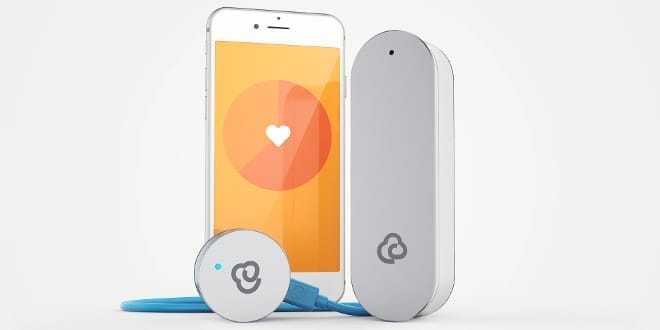Tech startup CliniCloud recently announced the release of its Bluetooth enabled medical diagnostic tools. CliniCloud offers both thermometers and stethescopes, which can connect to an app on your mobile device to show you the results. It can even transmit the results to your physician, and you don't even have to leave the comfort of your home to get a medical opinion. Collecting measurements on temperature, heart rate and respiratory rate can be useful in diagnosing common ailments like cold, flu, and pneumonia.
The mobile app guides the user through every step of the testing procedure. The measurements that are collected can be stored either locally on the mobile device or on the cloud. CliniCloud has a partnership with Doctor on Demand, a service that lets users get on demand medical advice from certified physicians. The user can share their measured vital signs with a doctor through the CliniCloud app, and get a professional opinion from Doctor on Demand or their own primary care physician.
The CliniCloud starter kit which contains stethoscope and thermometer can be pre-ordered for $109, but the price will eventually go up to $149. The kits will be shipped in July. The mobile app itself will be free to download for both iOS and Android. Consultation through Doctor on Demand will cost extra.
CliniCloud is not the only tool being developed that can measure vital signs from the comfort of home. Another startup, Scanadu, has its own device, the Scanadu Scout, which can measure temperature, heart rate, blood pressure, and blood oxygen level, making it a powerful all in one diagnosis tool. All you have to do is press it up against your forehead and it takes all the measurements.
The Scanadu Scout was successfully funded through Indiegogo, and backers had their devices shipped to them at the end of January. However the device still requires FDA approval before it will be available for purchase. They are also developing another device, Scanaflo, an at home urine testing kit. Like CliniCloud, both Scanadu devices connect to a mobile app which guides the user through every step of the test.
These devices mark a shift toward empowering users to take important medical tests for themselves without leaving home. Although the tests available are limited and there are a large number of conditions that will require a visit to the doctor to diagnose, these are still quite useful for some diagnosing some common conditions. It also indicates where technologies like this might go in the future. In the coming years we can expect a wider range of medical tests to be available from home, and to be overall more convenient for the user.
What do you think will be the impact of these devices? Is self testing from home with hand-held devices the future of medicine? Leave your comments below.







